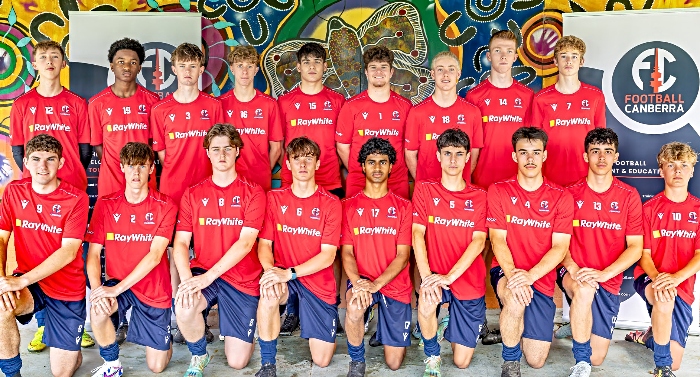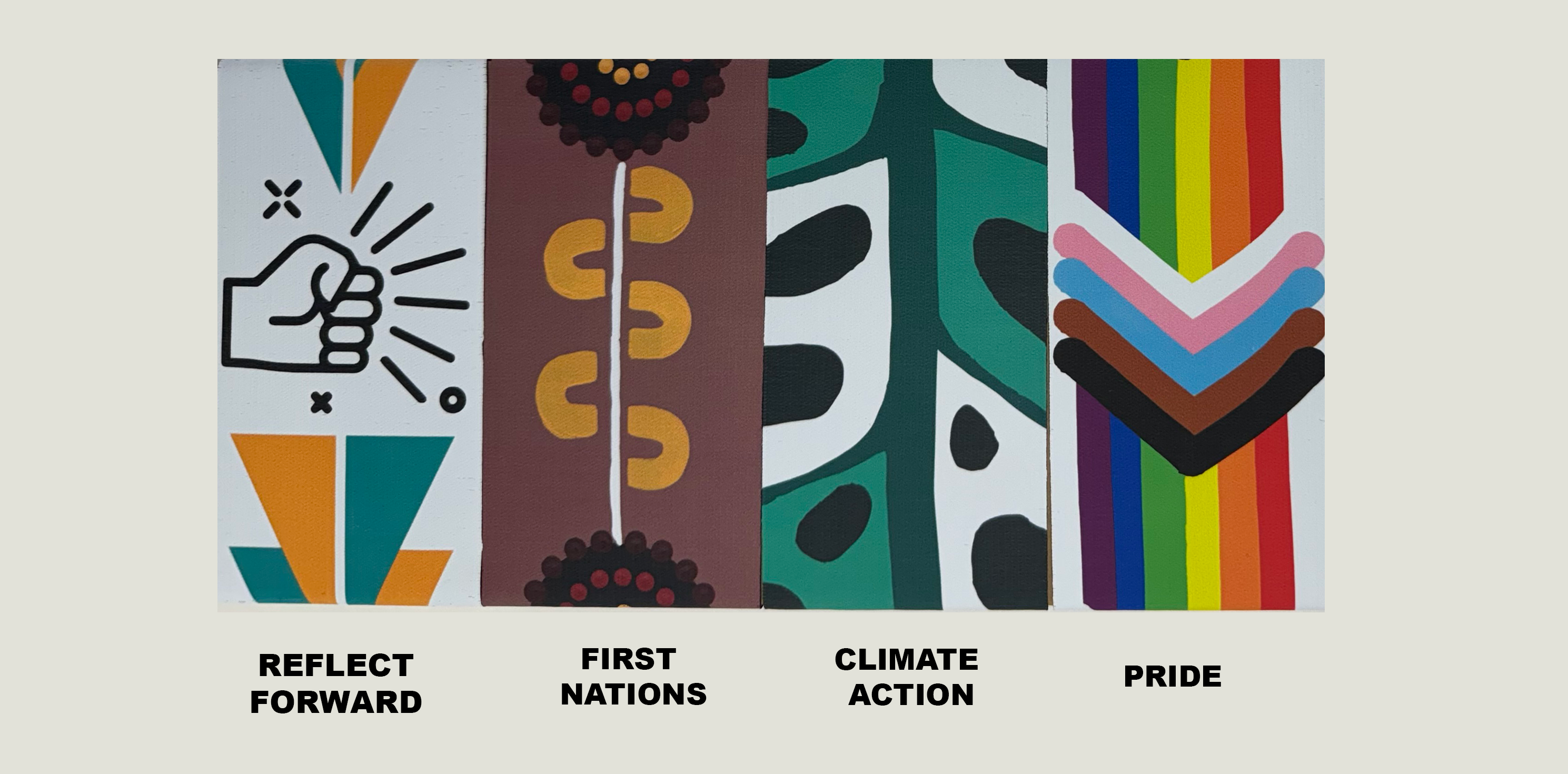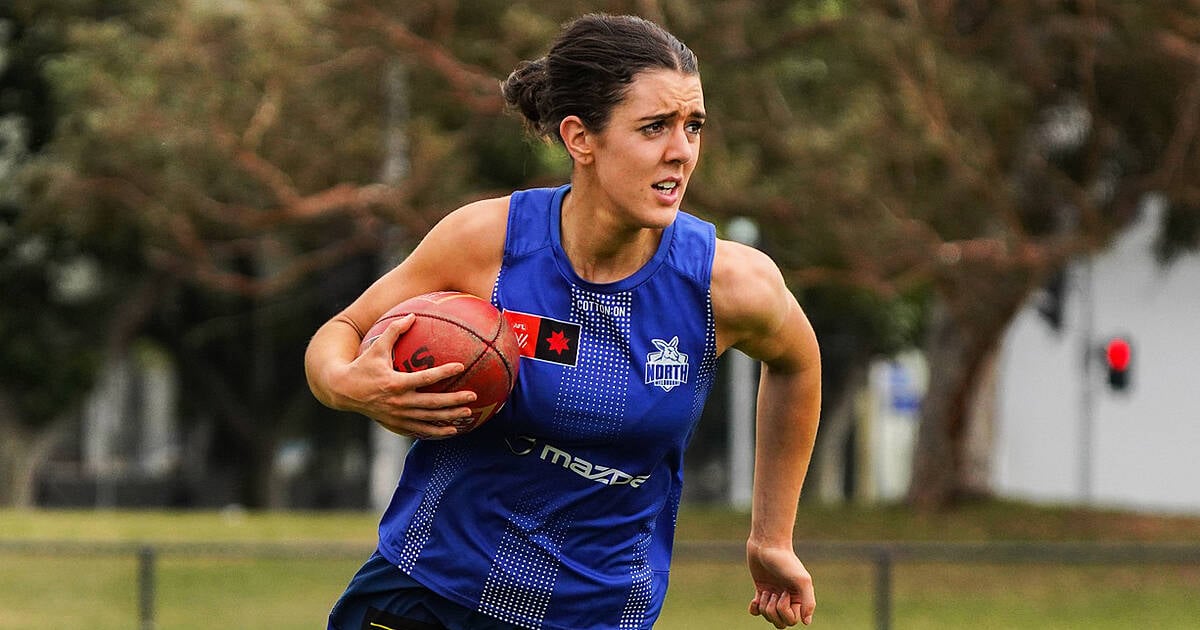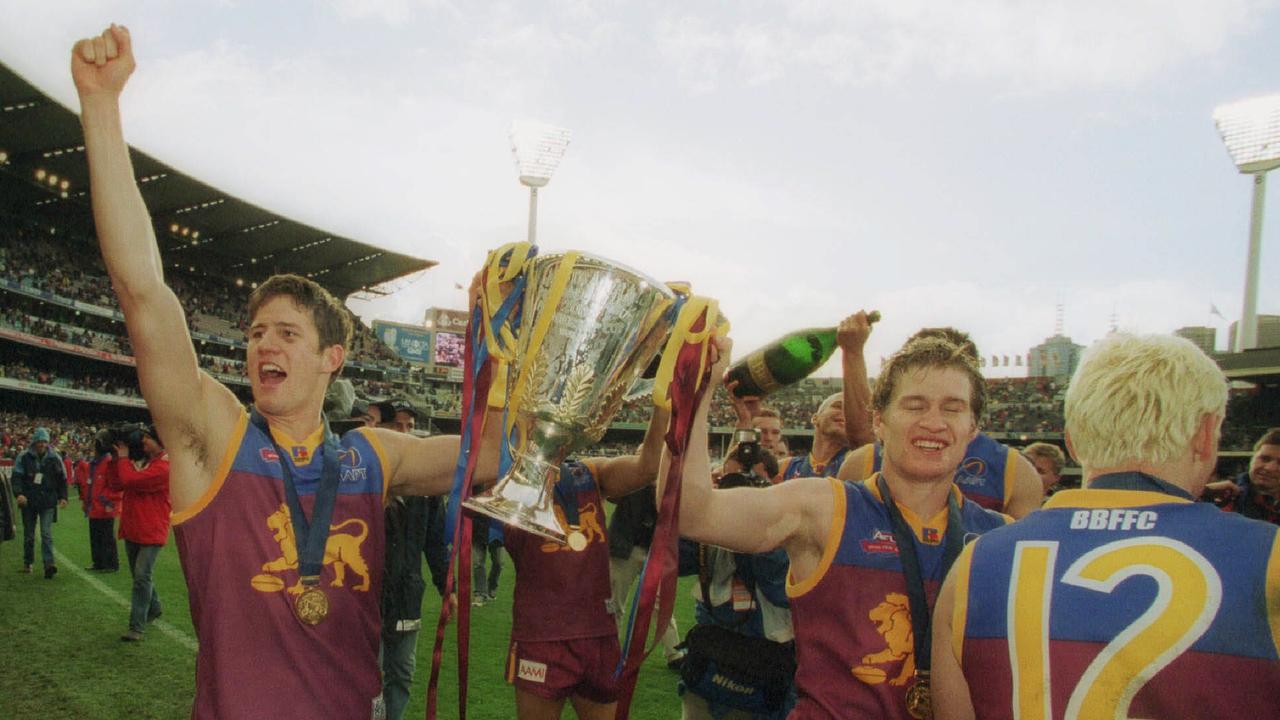‘Don’t want to die with music in me’: Inside Grundy’s rollercoaster journey from Collingwood to Sydney

- by Admin
- June 12, 2024
When Melbourne was bundled out of last year’s finals series in straight sets after a crushing loss to Carlton, Brodie Grundy couldn’t do anything but watch, having fallen out of favour with Simon Goodwin.
After becoming a two-time All-Australian and signing a lucrative deal he thought would see him play out the remainder of his career at Collingwood, Grundy’s career trajectory had suddenly gone from heading towards the Australian Football Hall of Fame to ending up with VFL minutes en-route to an unceremonious retirement.
Nine months on from helplessly watching Melbourne’s finals exit, Grundy is back playing a key role in a premiership contender.
His arrival at Sydney has revitalised the Swans, who are sitting pretty at the top of the ladder with a 11-1 record heading into Round 14 and look like unbackable premiership favourites at this stage of the season.
Grundy is back to playing some of his best football as well, averaging 18.9 disposals and 31.2 hit-outs to go along with 5.2 clearances per game through his first 12 appearances with the Swans.
While the lows of the past two years were admittedly difficult for Grundy to deal with, he is appreciative of the journey, having now come out the other side.
“I think I probably have dealt with things better than I would’ve thought. I’ve still got my head screwed on and a big part of that is having an identity away from football,” he told ABC Sport.
“Obviously we care so deeply about what we do and we put so much time, energy and effort into our craft, so when there’s a gap between where we want to be and where we really are, that can be uncomfortable. I’ve just learnt to navigate that. That was the biggest thing I’ve learnt.
“It’s easy to say there’s more to my life than football when you’re a two-time All-Australian, and then you start to feel less valued, less worthy and you start to think, ‘Shit’.
“Having those experiences really changed my philosophy and that was a really interesting time for me personally to unpack whether that was something I still held, that view.
“I think now, having gone through what I’ve gone through, it’s reflective of a real career. I think most players, if they’re in it as long as I’ve been, they’ve been injured, they’ve had success, been traded, they’ve been out of form and in the twos, so I feel like it puts me in a good space to be able to relate to anyone on the list.
“It probably has made me a better leader and probably deepened my sense of empathy because I know what it’s like.”
‘We could win four flags’: How bizarre Melbourne chapter came about
Just two seasons after penning a seven-year extension, Grundy’s deal went from being seen as a coup by Collingwood to a deal that handicapped the club’s ability to add talent to its list.
Collingwood soared to a shock preliminary final appearance in 2022 largely without an injured Grundy, and the writing was on the wall for the big man.
Grundy and Melbourne captain Max Gawn had both steadily developed into the two best ruckmen in the game over the half-decade leading into his extension, so the then-Collingwood star was shocked when Gawn’s team came calling. Prior to the move being finalised, Grundy caught up with his great ruck rival to discuss their union.
“I was really surprised that they were even interested in my services to begin with,” he recalled.
“Going to Melbourne, there was an element of, ‘Can this work?’. It was so crazy, but what if it does, it could be epic. Part of that was really exciting.
“We caught up for breakfast when I was keen, but we probably needed to unpack that in retrospect a little deeper.
“It was a pretty similar pitch (to Sydney) in terms of all the key figures being in a room at the same time and the cards were on the table that this was going to be the strategy and it was so crazy that it could work. We just thought, ‘Well what if it does?’.
“The vision that we were going for was like we could win four flags and be the best ruck partnership the game has ever seen, but obviously that relies on one of us being a good forward.
“That’s the thing with strategy and vision, it can change and it’s not fixed in time, and it is strategy, at the end of the day you need to implement it.
“The implementation is where we came unstuck. I wasn’t thriving and Max wasn’t thriving.”
With the benefit of hindsight, Grundy realises now that moving to Melbourne when he did was the “safe” option.
“I wasn’t really in a position to move interstate, we were really settled in Melbourne and obviously the intention was to be in Melbourne. We’d just brought our family home and were really settled there,” he said.
“That’s another thing I learnt now going through it a second time, when you play it safe and move across the road to Melbourne and it’s easy, it doesn’t necessarily turn out to be what’s best.
“On both parties, we went in with rosy glasses on thinking this would all work out really well. I do believe there were best intentions there from both parties, but (with) the strategic fit it just became pretty clear that wasn’t going to work and ultimately I had to take the brunt of the outcome, and that would mean the twos.”
Despite the move to Melbourne not panning out as Grundy had hoped, with premiership glory, he doesn’t hold any ill-will towards the Demons.
“The culture that Melbourne has is really high-performing in terms of the standards they set, the work ethic, and I’m really grateful to have gotten a glimpse of what it’s like in that side,” he said.
“When I went down into the twos, I did attempt to really give it a go and buy in, but ultimately it was going to prove pretty difficult for the next four years that I had left on my contract for both me and the club to be really happy with the deal.
“It was a really mature response to be able to sit down at the end and have transparent conversations, putting our cards on the table and saying, ‘Hey, is this still working?’ They obviously could’ve kept me, but I’m really grateful that they allowed me to seek that trade.”
Dealing with missing out on Collingwood’s premiership win
While Grundy was sat in the stands or at home watching Melbourne get bundled out of the finals last year, in a cruel blow, he was forced to watch many of his old Collingwood teammates go on and win a premiership a few weeks later.
For a player who had dreamed of being a Magpie for life, it was a bitter pill to swallow for Grundy, especially after coming within a kick of winning a premiership in 2018.
Despite not being able to secure a flag during his time at Collingwood, Grundy doesn’t see his 177-game tenure with the Magpies as a failure.
“Giving 10 years to a cause deeply committing to that, yeah, you want to ultimately come through, shape that journey and ultimately get the prize, but sometimes that doesn’t happen,” he said.
“It doesn’t mean that it wasn’t a success or it doesn’t mean that you didn’t learn anything. That’s probably one of the things I’ve learnt through my career.
“I’ve been a little bit shocked at times listening to legends that I’ve either been coached by or played with saying they question their career if they didn’t win a premiership.
“Yes, I didn’t win a premiership there but I came pretty close in 2018, but it doesn’t mean that wasn’t a successful stint for me. I learnt a lot and I think I helped contribute to the culture of the club for the time I was there.
“I was obviously really happy for my ex-teammates … but you’re not a part of that and it’s just the reality.”
Grundy revealed how Collingwood’s premiership win hadn’t hurt him as much as he anticipated, simply because he expected it to happen the year before, when he was still at the club but unable to play through injury.
The 30-year-old explained how his fiance Rachael had egged him on to prepare for the possibility of Collingwood winning a flag.
“I’d felt and I was sort of prepared for them to win a flag the year before when I was injured,” he said.
“I was preparing mentally that they were going to be really successful and I wasn’t going to be a part of it, and I was surprised they didn’t make the grand final in my last year there. So I had 18 months to compartmentalise that I wasn’t going to be a part of that.
“They were so f*****g good (in 2022) and I’ve got my PCL and then I come back and I’ve got a fractured ankle. I’d be watching the games at home and it was probably harder for me that year, to be honest.
“It does take a while to detach from the Collingwood cause when you’re there for so long and you’re deeply wedded to it.
“It probably would’ve been harder if they’d won it the year before, so what Tay (Adams) went through, that’s incredibly difficult.
“We’d be watching at home and I’d have my knee brace on and I’d have all these emotions and she (Grundy’s fiance) was like, ‘Brodie, you need to prepare that this team will be in the grand final. This team could win it, and you need to prepare yourself’.”
Move to Sydney and role in evolution of ‘Bloods’ culture
Having admitted to taking the “safe” option to go to the Demons, 12 months later, Grundy was prepared to do far more due diligence on his next move.
“It really came down to me having to get this next decision right and probably learning from what didn’t work last year,” he recalled.
“It just spoke to how important strategic fit is. It doesn’t matter if it’s in sport or business, if you have an asset or a person and they have strengths and capabilities and if they don’t fit and merge well, it’s going to be dysfunctional.”
Grundy met with the Swans brass featuring John Longmire, Tom Harley, Charlie Gardiner and said he was “blown away” with the club’s pitch to him.
However, he needed to go away and come up with some questions of his own to ask the club before fully committing.
“It was one thing to go there and have an excellent pitch, but then you go away and consider some deeper questions and follow up on that,” he said.
“I was just asking John deeper questions about the club, the team, his style of coaching and what he needs from me like, ‘What do you think you’re getting? Do you think you’re getting a forward?’
“I was probably more forthright this time in terms of who I am and what I could bring and just pretty straight up in terms of (saying), ‘This is what you’re getting’, and they were just like, ‘Dude, we really want that’. But then it’s just making sure that is realistic, and either way I looked at it, it was a pretty good match.”
Twelve games into his career with the Swans, Grundy says he “hasn’t been let down at all” by what the club has offered him so far.
The Swans are widely considered to be one of the most well-run football clubs in the AFL, and perhaps one of the best-run organisations in Australian sport in general.
Much of the lure around the club is centred around its famous ‘Bloods’ culture. It’s a culture that Grundy is admittedly still learning.
“I’d say I’m still learning about that culture and what it means to be a ‘Blood’,” he said.
“When I came into the AFL, I was heavily influenced by Michael O’Loughlin, Brett Kirk, (and) Tom Harley was my mentor in the AIS AFL Academy. Matthew Lloyd was in that as well, but largely it was like a miniature Swans academy when I look back.
“The central theme of that program was all about creating good people, and if you happened to be a good football player … that was just an extra bonus. It was very strong on having good character and representing yourself, your family and the game in a high regard.”
Having now joined Sydney, Grundy is thrilled to see the themes from his days at the AIS AFL Academy translating across to the Swans.
As one of the elder statesmen in the team, Grundy is surrounded by some of the league’s brightest young stars. Every week he is surrounded by what is arguably the best midfield trio in the league in Isaac Heeney, Errol Gulden and Chad Warner.
While the traditional ‘Bloods’ culture has emphasised simply putting your head down and working hard, these young stars are infusing the club with a little bit of swagger.
“I’ve come at an exciting time where we’re trying to preserve our history and legacy as a really tough, resilient, hard-working football side while evolving with a new generation of players coming through and figuring out what that looks like,” Grundy said.
“We’re asking ourselves questions like, ‘Is this still the best way of working?’, and I think any style, culture or team, in football or not, if you keep asking yourselves those questions and hold a mirror up to yourself, usually the outcome is really positive.”
Now at his third club, Grundy is glad to be part of the culture at Sydney, where players are encouraged to be entirely themselves.
“Obviously starting at a new club again, this pre-season straight away you could get a sense that these young guys want to enjoy it as well,” he said.
“That was probably the biggest thing (that has stood out), post-game and during the week just stopping and smelling the roses and really loving and enjoying what we do.
“That probably aligns with me the most in terms of what I’m trying to do playing AFL, obviously having that perspective and that gratitude for the position that we’re in. This Swans side and the young guys that we have really take that to the next level.
“Those first five to 10 minutes after the game they’re playing some music, having a dance and really enjoying that, and I haven’t really seen that sort of celebration before.
“If you create a space where everyone feels they can contribute and bring the best version of themselves, then that’s going to be really additive to performance.
“That’s why I think unpacking the values of the club and what people stand for and trying to cultivate an environment that is safe and inclusive for everyone is really important. That really translates to team success.
“It’s new for the Swans, but we’re trying to explore a deeper connection off-field and how we can continue to support one another both on and off the field.”
Having gone through the ultimate rollercoaster during the past five years, Grundy is now back where he always wanted to be, contributing both on and off the field for a top-class organisation.
“I’m just happy to be where I am and still playing footy and enjoying it because there was a time there at Melbourne where I was playing in the VFL and as our minds tend to do, the anxious thoughts came in like, ‘What if I’m like this for the next two or three years?’
“That was just a risk I wasn’t willing to take because I don’t want to die with the music still in me.
“It just comes back to what you can control and letting go and accepting.
“I don’t really regret anything in my career and everything happens for a reason and it just makes for a really cool story if I come through the other side and get what I’m after in terms of team success.
“It just feels good being back where I feel like I needed to be.”
Sports content to make you think… or allow you not to. A newsletter delivered each Saturday.
The Latest News
-
December 25, 2024Gearing Up for Australian Open, Nick Kyrgios Elevated in Bold Predictions From Renowned Tennis Experts
-
December 25, 2024Dads’ day out! Australian stars unwind with with wives, kids at MCG. Watch | Cricket News – Times of India
-
December 25, 2024Border-Gavaskar Trophy: What is Australia’s record in Melbourne in Test matches? | Sporting News Australia
-
December 25, 2024India must continue to exploit ‘brittle’ Australian line-up: Ravi Shastri | Cricket News – Times of India
-
December 25, 2024‘I only bowled 24 balls’: Boland looks back in wonder at MCG marvel





